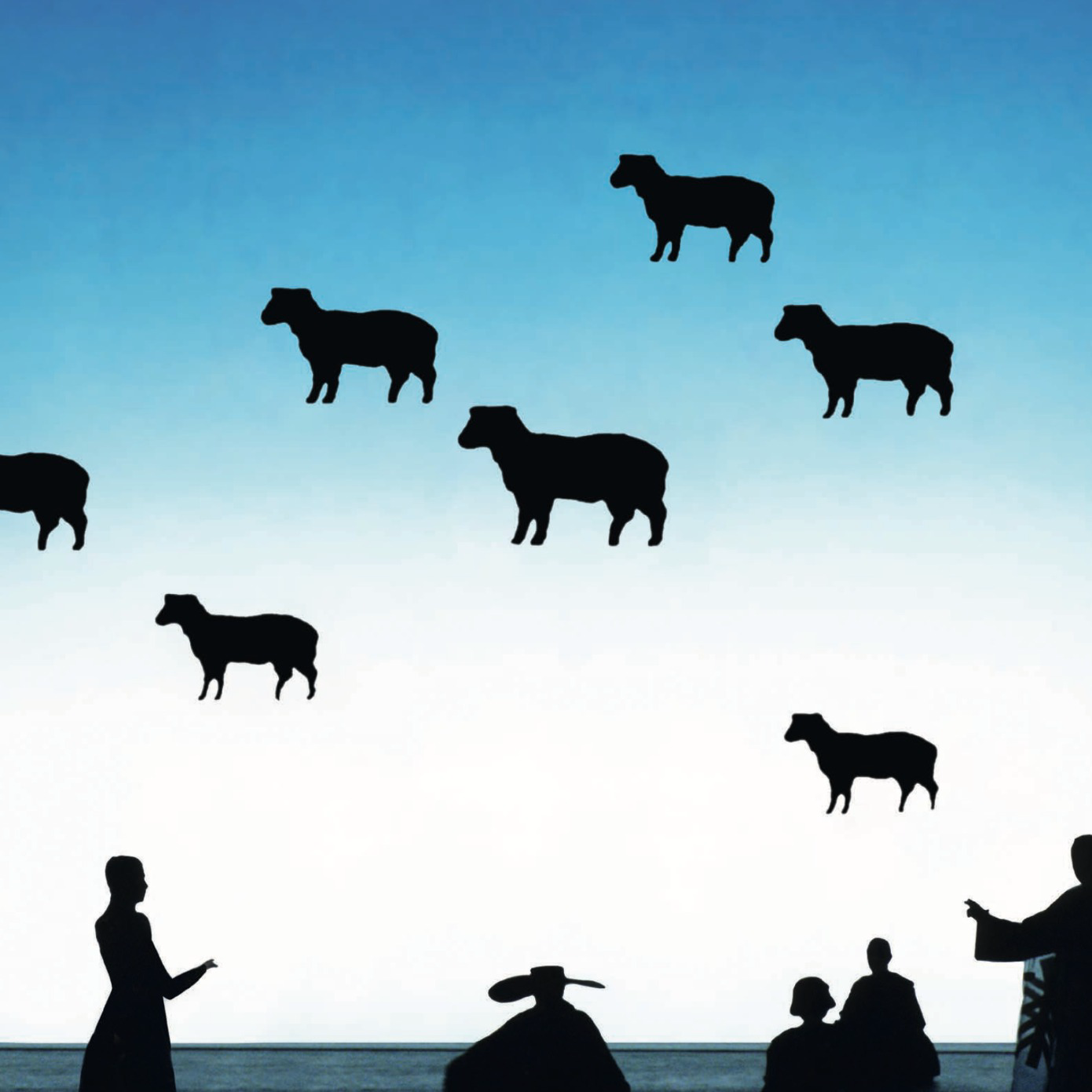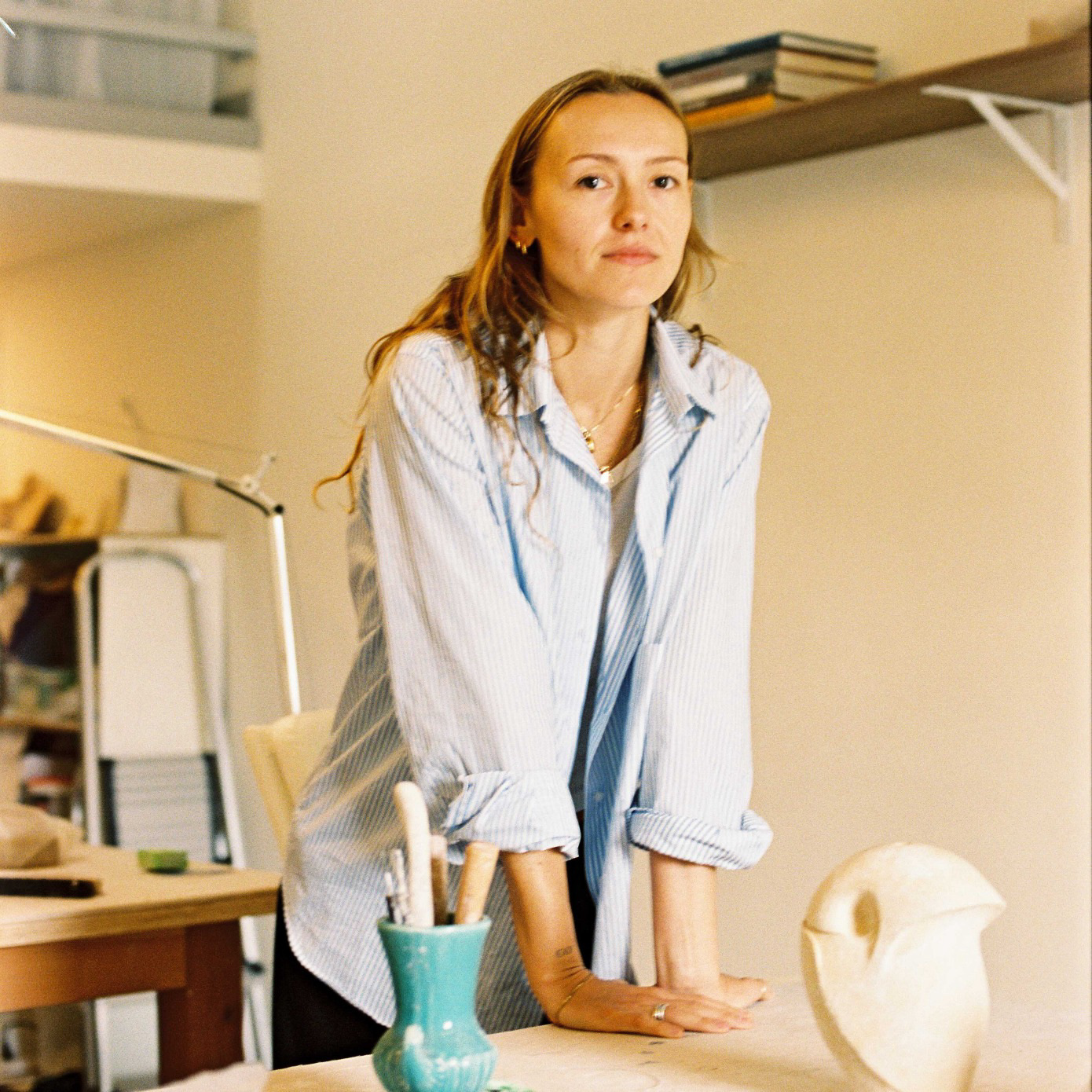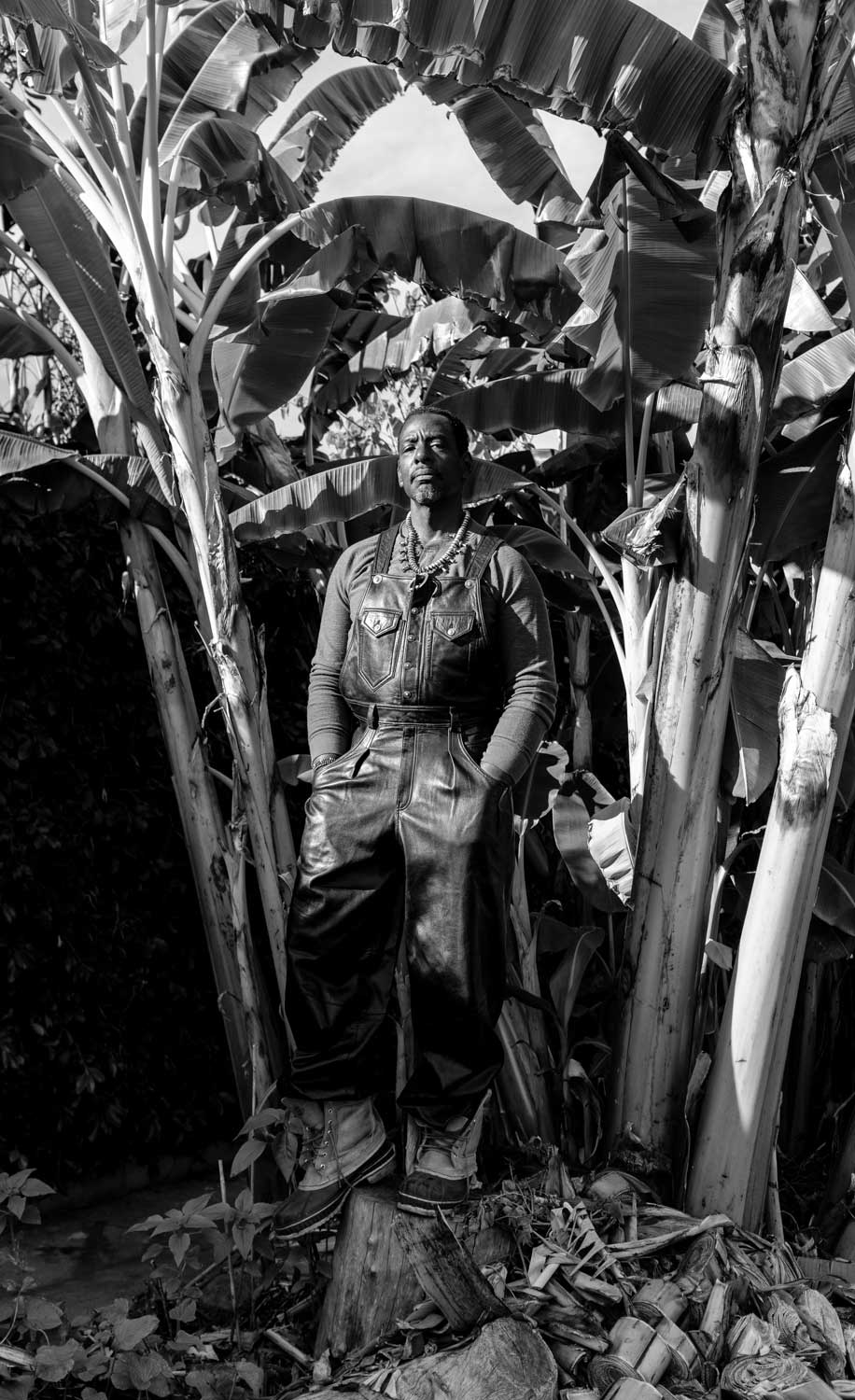
The corner of Exposition Boulevard and Chesapeake Avenue is blanketed in flora. Even at dusk, the canopy of plants glows with hints of yellow and hunter green sunflowers, blossoms and climbing vegetation. The bit of sidewalk, typically designated to litter and dying grass, is densely packed with shrubs and fronds, and a banana tree arching to the wall forms a gateway to a gangsta’s paradise.
Ron Finley “ain’t no joke.” Eric B. & Rakim’s 1987 refrain plays in my head as Finley and I meet in his South Central garden and studio. Finley, who calls himself the Gangsta Gardener, is a horticulturist dedicated to the reclamation of concrete space. He is renowned for his urban gardening project, which garnered global acclaim after his 2013 “guerilla gardening” TED Talk on gardening on land he did not have the legal right to cultivate went viral.
Finley started his career in fashion in his mid-teens with the desire to be a tailor. “I wanted to be able to create a jacket so tailored that if I threw it up in the air, it would levitate,” he says. This passion for design was in part motivated by his belief that black people deserved to be served better by an industry that largely excluded them. “As a kid, I realized, damn, this clothing was terrible. We had to accommodate the clothes instead of the clothes accommodating us.”
Finley began his line of high-end women’s ready-to-wear, Dropdead Collexion, in his garage, eventually selling it at Neiman Marcus and Saks Fifth Avenue and creating custom looks for the likes of Will Smith and the NBA’s Nick Anderson and Gary Payton. His architectural designs of organic textiles, such as linen and leather, angled and draped in contours that revealed a craftsmanship and intentionality behind each stitch. Innovative and functional, these silhouettes foreshadowed his purposeful approach to urban gardening that focuses on form, texture, composition and layering.
“The 2007-2008 financial crisis happened, and that changed everything. Do I use my shovel, or do I use my AK? I chose to make my shovel the weapon of choice, the weapon of mass creation,” says Finley. The housing crisis and ensuing economic downturn of the early 2000s prompted his move to gardening. “People always think there’s a stretch between fashion and gardening, but there is none. Where does fabric come from? Where does color come from?”
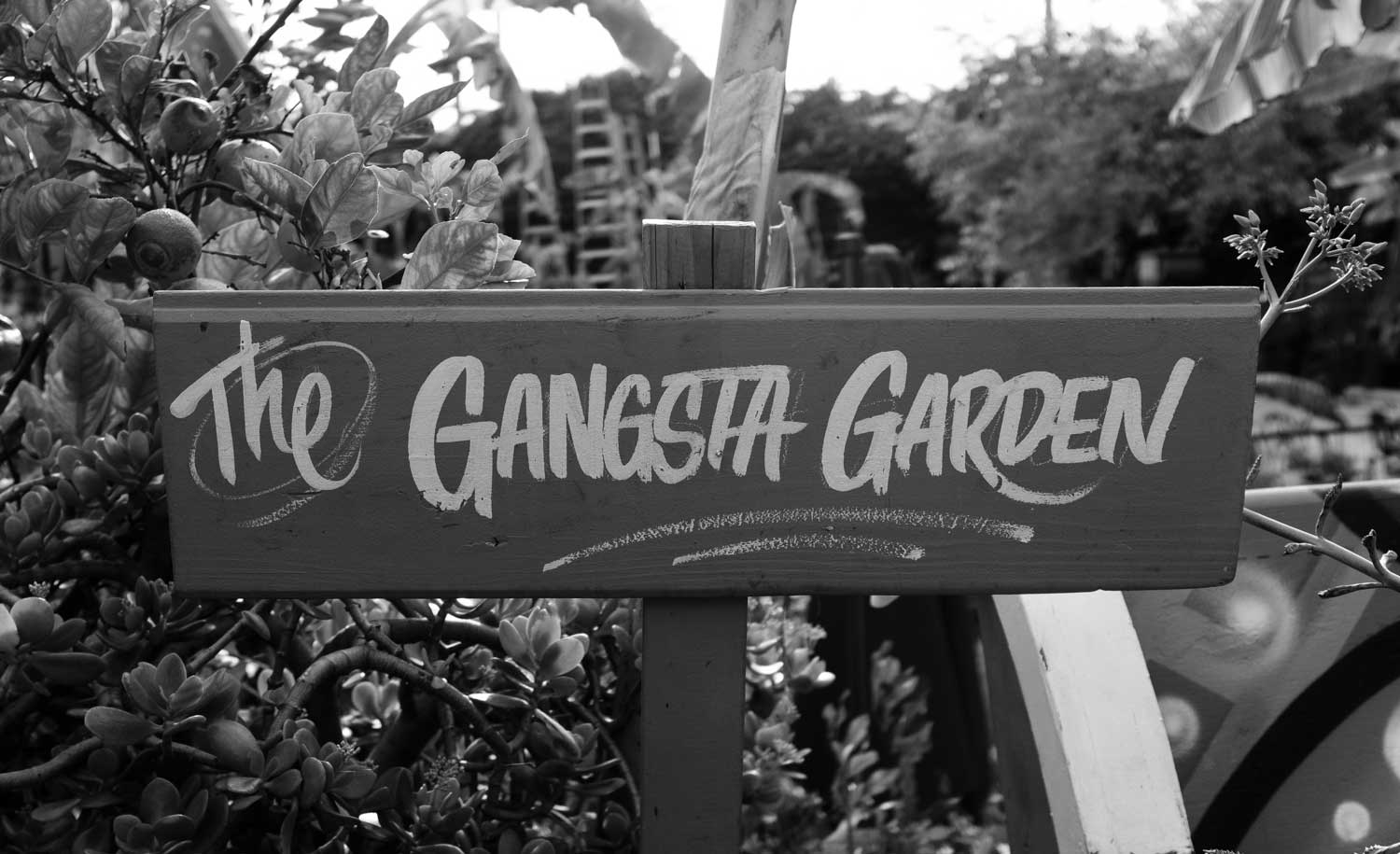
Finley began his foray into gardening in 2010 with the parkway in front of his house. He uprooted the dying grass on the stretch of land between the sidewalk and street—regulated by the city but maintained by homeowners—and planted in its place vegetables, fruit trees and other greenery. “I wanted butterflies and hummingbirds. I wanted something pretty, like amaryllis and agapanthus, and I wanted it to smell like jasmine, juniper, mint and orange blossoms,” he recalls.
“So that’s what I did. That’s what designers do.”
A ruckus ensued. Prompted by a neighbor’s complaint, the city cited Finley, giving him two options: get an expensive permit or cut down the garden. Finley fought the citation and resulting warrant for his arrest with a petition signed by hundreds in the community. His efforts to beautify and nourish a corner of his hometown of South Central led to his TED Talk and international attention.
Today, the garden is a source of joy for Finley and others. “If it don’t make you happy, don’t do it,” says Finley, whose personal motto is “operate from happy.” His neighbors pop by to harvest and rest among the abundant growth of flowering plants. There’s a sentiment that the garden belongs to the community. From mothers and daughters to commuters and passersby, the Gangsta Gardener has invited people to gather vegetables and fruit, to smell the jasmine and wonder at the 14-foot-tall sunflowers that occupy the flourishing corner.
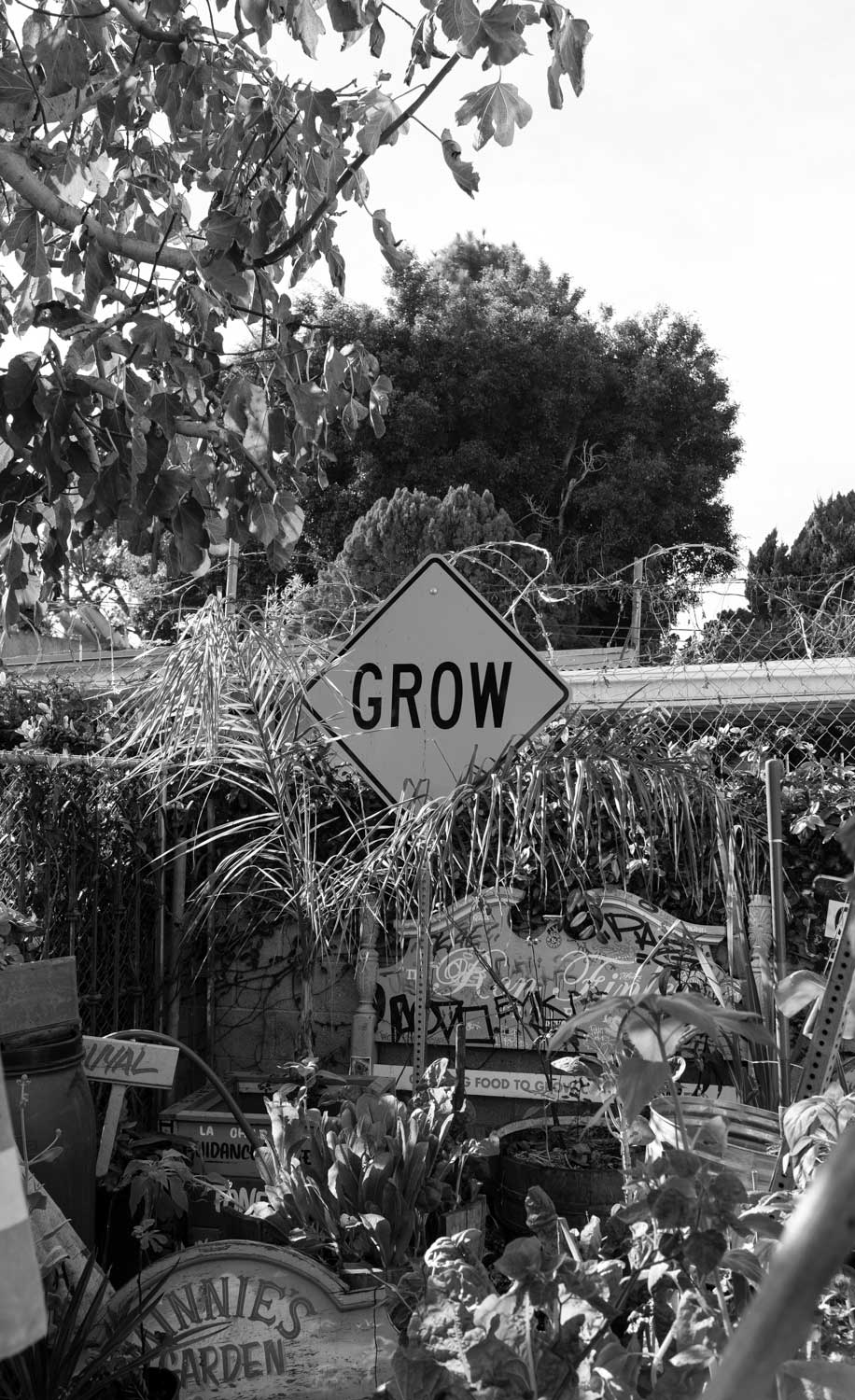
Finley’s approach to gardening—in a neighborhood with a black majority—is founded in his belief that growing one’s own food can be liberating. “I want my legacy to be that I freed some people,” he says. Refusing to live a life of circumstance, he relies on ingenuity and the pursuit of beauty as a guiding principle to create hope and possibility, especially for people who have traditionally been denied environments of splendor. “My favorite thing to grow is beauty,” says the father of emerging artists, Delfin and Kohshin Finley, the latter of whom shot the photographs included in these pages. “In this cesspool of concrete and asphalt, I plant beauty.”
The Ron Finley Project is now a global effort to transform food deserts into community-led food paradises. It provides educational workshops on gardening techniques and harvesting and has planted dozens of community gardens throughout Los Angeles. Finley’s mission to replace vacant lots and curbside pathways with blossoming food fields has even shifted LA city policy regarding the use of blighted land.
Finley speaks around the world, and his movement has gone international. “I got grandmas in the UK calling themselves ‘gangsta gardeners’; I got 11- and 12-year-old kids in India calling themselves ‘gangsta gardeners’ and sending me pictures of them propagating, and I’ve got guys calling me from remote places in Africa saying the same thing,” he says.
As the project expands with community gardens based in schools in California and Washington and Finley takes on a curatorial role at Destination Crenshaw, the open-air museum celebrating black activism, he hopes his efforts are changing the perception of his neighborhood and community. “Gardening is gangster,” Finley says. “All that other gangster shit is fucked up to me. It fucked up our community, our culture. That gangster will get you confined. I wanted to flip the script; I wanted a gangster shift: Get gangster with this shovel. I wanted to change the vernacular on what’s gangster.”
This story was originally published in the Spring 2020 issue of LALA Magazine. Order your print or digital issue by clicking here.

